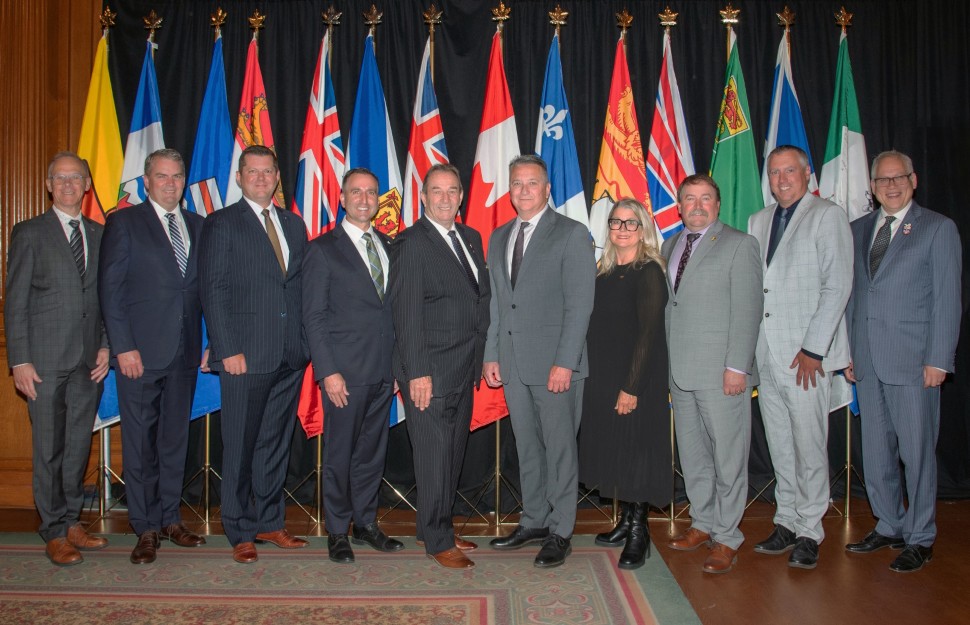Tariffs and trade were among the key topics of discussion for the country's agriculture ministers during their annual conference this week in Manitoba.
Federal, provincial, and territorial ministers reaffirming their commitment for a resilient, sustainable, and competitive agriculture and agri-food sector.
The three-day meeting, held from September 7 to 9, saw the group visiting a dairy operation and a grain farm, to get producers input on the trade issues before sitting down for their meetings. The group covered a wide variety of topics from the dry conditions and wildfire activity, to the economic uncertainty around the newly imposed tariffs and the financial impact on key Canadian exports including canola, peas, pork, and seafood.
Federal Agriculture Minister Heath MacDonald referencing the Prime Minister's assistance measures for the industry noted that the SERF program was only basically for automotive steel and aluminum.
"Now there's a line item in there that canola is there, and it's a $5 billion program. So we have to define and do a communication on how that could affect farmers positively if it's required. So certainly there's lots more to do, without a doubt, but we're willing to do it, and I think the Prime Minister was very clear, this is a start."
He notes the government is continuing to look at other options that will help and grow the industry, if we can domesticate some of that product here in Canada and through the clean fuel regulations revisions or amendments.
"That's going to take some time, but it's also something that I think producers are asking for. We know that it can help. It's not going to be the end answer, but it's certainly a process that we need to go through. But we also need to do it alongside the canola growers and those associations that are represented. We need to know what those amendments need to be."
MacDonald says overall they want to see producers seize new opportunities, reduce regulatory barriers, expand market access, and drive solid economic growth for the sector as a whole.
"By working together, we will help ensure producers have the tools they need to succeed, while strengthening the resilience and competitiveness of the sector for years to come."
The conference also featured a panel of experts from across the agriculture value chain, who shared insights on trade opportunities, infrastructure needs, and investment priorities, with ministers agreeing to examine the competitive conditions between domestic and imported agri-food products.
There was also a focus on regulatory modernization, the need to reduce the red tape for farmers while speeding up the decision making process.
MacDonald says we're seeing advancements in CFIA and PMRA, and we hope that continues.
"I think overall, I think I can speak for myself, but I was actually impressed to the extent that they're focused on this. They're hearing us. Our ministers talk about it all the time. And so I think kudos to them for coming here and showing us how they're adapting. "
RF program was only basically for automotive steel and aluminum. Now there's a line item in there that canola is there, and it's a $5 billion program. So we have to define and do a communication on how that could affect farmers positively if it's required. So certainly there's lots more to do, without a doubt, but we're willing to do it, and I think the Prime Minister was very clear, this is a start.
Key updates were shared on Business Risk Management (BRM) programs, including enhancements to the AgriStability program for 2025. These include increased compensation rates and payment limits, with plans to include feed costs for rented pasture as allowable expenses starting in 2026.
Ministers also discussed the development of the next ag policy framework, tasking officials with exploring reforms to ensure BRM programs are more coherent and responsive to producers’ needs.
The meeting co-host Manitoba Agriculture Minister Ron Kostyshyn emphasized the importance of collaboration throughout the agriculture sector.
"We are committed to working with federal, provincial and territorial partners, as well as with industry, to keep agriculture strong. Our focus remains on long-term economic stability, while continuing to advocate for initiatives that help producers navigate global market and trade pressures.
The next FPT Agriculture Ministers’ meeting is scheduled to take place in Halifax, Nova Scotia.
